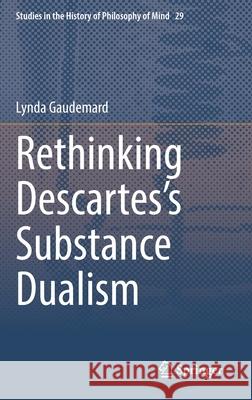Rethinking Descartes's Substance Dualism » książka
topmenu
Rethinking Descartes's Substance Dualism
ISBN-13: 9783030754136 / Angielski / Twarda / 2021 / 157 str.
Kategorie BISAC:
Wydawca:
Springer
Seria wydawnicza:
Język:
Angielski
ISBN-13:
9783030754136
Rok wydania:
2021
Wydanie:
2021
Numer serii:
000264535
Ilość stron:
157
Waga:
0.41 kg
Wymiary:
23.39 x 15.6 x 1.12
Oprawa:
Twarda
Wolumenów:
01
Dodatkowe informacje:
Bibliografia
Wydanie ilustrowane
Wydanie ilustrowane











